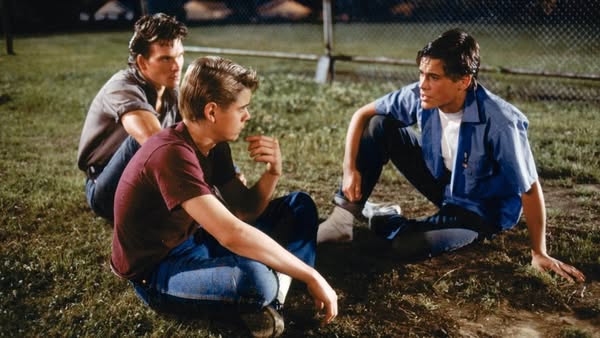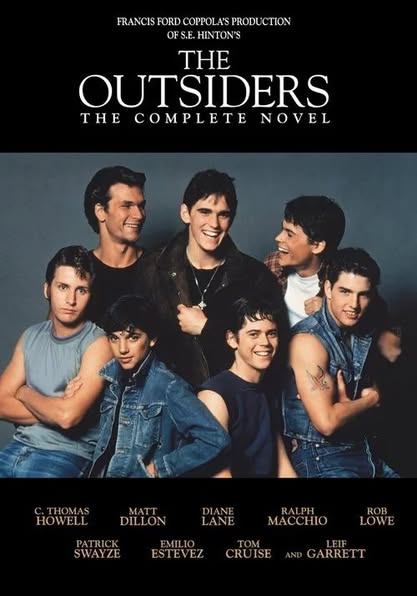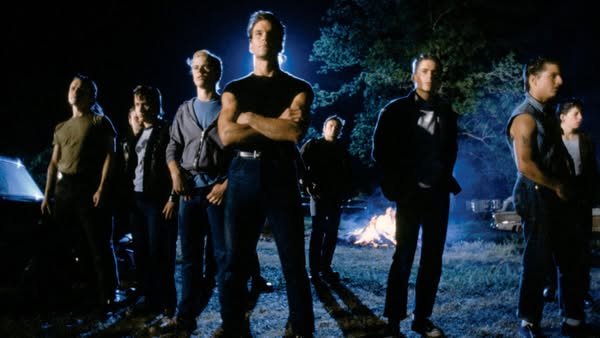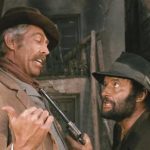The Outsiders (1983)

The Outsiders (1983) is a powerful coming-of-age drama directed by Francis Ford Coppola, based on S.E. Hinton’s classic novel. Set in the 1960s, the film captures the intense rivalry between two teenage groups—the Greasers, from the lower socioeconomic class, and the Socs, the affluent kids from the other side of town.
The story follows Ponyboy Curtis, played by C. Thomas Howell, a sensitive and introspective Greaser who struggles to find his place in a world marked by violence and class division. Alongside his brothers, Darry and Sodapop, and his friends, Ponyboy navigates the challenges of adolescence, loyalty, and the harsh realities of their environment. The film explores themes of friendship, identity, and the search for belonging, resonating deeply with anyone who has ever felt like an outsider.

Coppola’s direction brings a rich emotional depth to the narrative, capturing the struggles and camaraderie of the young characters. The film is notable for its strong performances, featuring a talented ensemble cast that includes Matt Dillon as the rebellious Dally, Ralph Macchio as the idealistic Johnny, and Patrick Swayze as the protective Darry. Each character embodies the complexities of youth, showcasing the tensions that arise from their backgrounds and circumstances.

Visually, The Outsiders is striking, using the cinematography to emphasize the stark contrasts between the Greasers and the Socs. The film’s score, composed by Carmine Coppola, adds to the emotional resonance, enhancing the themes of longing and despair that permeate the story.
The film also addresses broader social issues, such as economic disparity and the search for identity in a turbulent world. Through its exploration of violence and loyalty, it invites viewers to consider the impacts of societal divisions on young lives. The iconic rumble between the two groups serves as a turning point, highlighting the futility of their conflict and the loss that accompanies it.

The Outsiders ultimately stands as a timeless exploration of youth, friendship, and the quest for understanding. Its poignant storytelling and relatable characters resonate with audiences, making it a beloved classic that speaks to the universal struggles of growing up. The film’s enduring legacy is a testament to its ability to capture the complexities of adolescence and the journey toward self-discovery.











